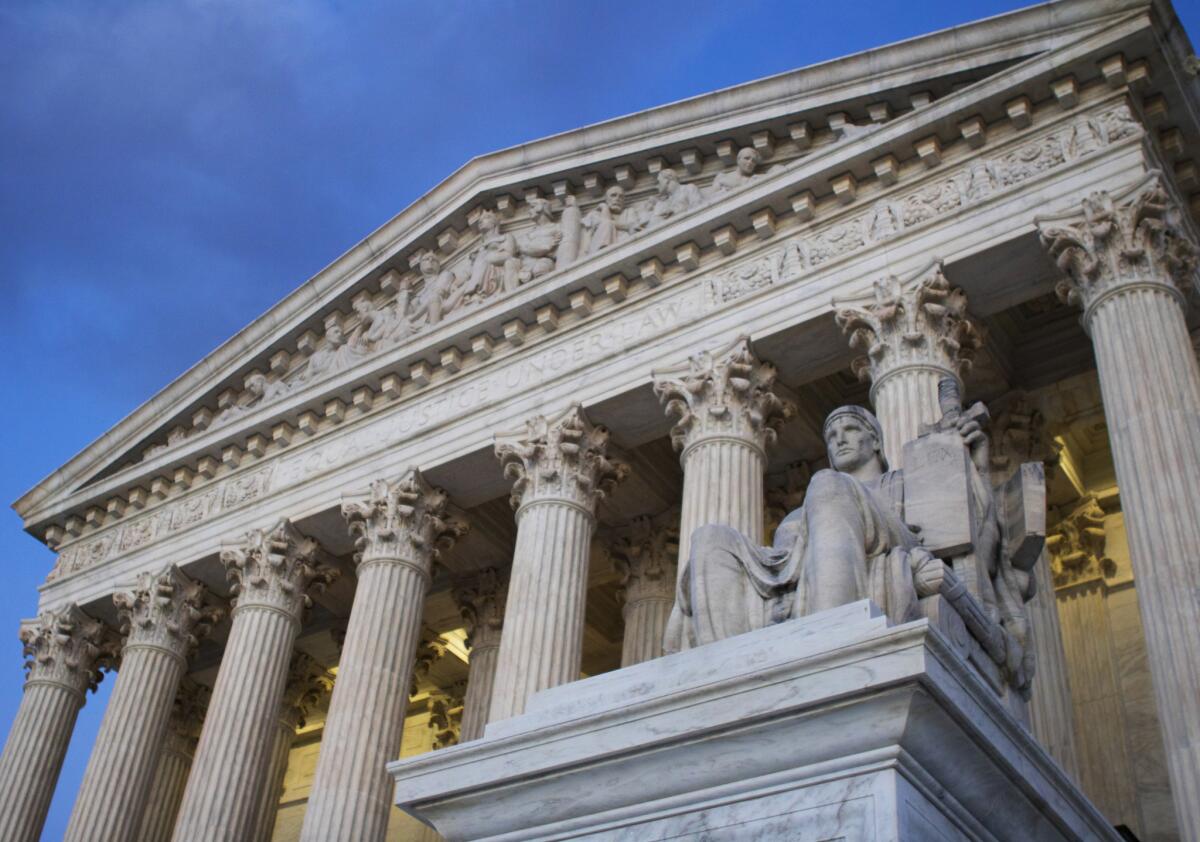Letters to the Editor: If jury verdicts must be unanimous, should Supreme Court decisions?

To the editor: UC Irvine School of Law professor Henry Weinstein makes a strong case for the value of unanimous verdicts, which, he said, “have been a common requirement in Anglo American jurisprudence for hundreds of years.” His explanations of how this came about in Louisiana and Oregon as a result of racial and ethnic bias was especially interesting.
But what surprised me was that he never questioned the fact that the Supreme Court will be deciding the constitutionality of non-unanimous jury verdicts by issuing what is almost certain to be a non-unanimous decision.
In criminal trials in almost every state, one person can be saved from suffering unjustly if just one jury member is on his or her side. Yet the whole country could suffer from a Supreme Court decision even though 44% of the justices disagree with the decision.
Requiring high court decisions to be unanimous could solve many of our Supreme Court problems and bring “real justice.”
Larry Goldman, Claremont
..
To the editor: Early reports indicate that the Supreme Court is ready to dispense with the last vestige of non-unanimous verdicts in state criminal cases.
Although this decision is long overdue, it does have one consequence not addressed in Weinstein’s op-ed article: Unanimity goes both ways. A jury split 10-2 for acquittal now becomes a hung jury rather than a jury that acquits.
Although I doubt that this situation arises more than once in a blue moon (I had it happen twice in well over a hundred jury trials; the prosecution dismissed one case, and the other jury came to a compromise verdict, convicting on one charge of 38, which satisfied the holdout), it is a collateral consequence.
Andrew E. Rubin, Los Angeles
The writer is a former criminal defense attorney.
More to Read
A cure for the common opinion
Get thought-provoking perspectives with our weekly newsletter.
You may occasionally receive promotional content from the Los Angeles Times.










